When it comes to pregnancy, there are many things that can affect your health (and thus your baby’s health); your food choices/nutrient intake, movement/exercise habits, stress management, and sleep routine are among the most commonly mentioned.
However, one very important contributor to your health during pregnancy that doesn’t get much airtime is your exposure to toxins.
I set out to research this topic thinking I’d find a handful of studies that would give more hardcore data behind choices to limit the use of plastics, use safe cookware, and opt for cleaner personal care products, and so on… but I was astounded at the amount of research we have on the effects of toxins during pregnancy. In some cases, hormones, reproductive functions, and fetal development are directly affected by toxins.
To be 100% transparent, this was one of the most difficult topics to research because so much of our exposure to toxins is outside of our control (read: air pollution and other widespread environmental contaminants), however there are lifestyle choices we make that can lessen our exposure. This is where I chose to focus my attention.
In my book, Real Food for Pregnancy, I devote a whole chapter to this topic. There were times when I was tempted to just leave the toxin discussion out entirely, but as I got further down the research rabbit hole, I came to the conclusion that it would be unethical for me to not included all the data.
If I didn’t “go there,” who would?
No one else seems to be warning pregnant women about this.
I could have settled for a simple bullet pointed list on the practical side (i.e. don’t store food in plastic containers, avoid secondhand smoke, avoid the use of nonstick pans, etc), but without giving research to back it up (the big WHY), essentially you’d be acting on blind faith to follow my suggestions.
The more I researched, the more strongly I felt it was my duty to share what scientists have found about toxins in pregnancy. It is too simplistic to think your baby’s development is entirely dependent on food/nutrition and not other lifestyle choices. If we want the best for our children, we have to consider all of the areas that affect our health; toxins are one of ‘em.
One of my advanced reviewers, Ayla Barmmer, who is a highly skilled dietitian, practitioner of functional nutrition, and the host of the informative podcast, Real Food Radio, was happy I included a chapter on this topic. In her practice, she sees a number of health issues (often hormonal) that relate to toxins and understands the importance of minimizing such exposure.
We recently sat down for an interview to go over the what, why, and how of toxins during pregnancy.
In our interview, we discuss the research on toxins and their effects, but also practical solutions to lessen exposure during pregnancy.
A little reassurance before you take a listen:
Some of the information I share is scary (no one likes to think about hard topics, like birth defects or fetal loss). You may be angry that no one has told you of these harmful everyday chemicals or scared that you’ve been exposed already.
Remember that you are always doing the best you can with the information you have at the time. Your body has the blueprints for making a perfectly healthy baby, and avoiding toxins is just one of many areas of your life to continue to refine as research uncovers new information.
Don’t sweat the past. Focus on what you can do now.
I, myself, had to talk myself down during the research process, knowing that I “could” have made some different choices during my own pregnancy that would have reduced my toxin exposure. But, at the end of the day, we can’t go back and rewind the clock; all we can do is make a choice to change it up today and the next day and the day after that.
Please keep this top of mind as you listen. Ultimately, my goal is to make this topic less scary. (Knowledge is power, right?)
Brief overview of our Toxins During Pregnancy interview on Real Food Radio (episode 32):
http://bostonfunctionalnutrition.com/real-food-radio-episode-032-toxins-in-pregnancy/
- What are toxins? Which ones should we worry about?
- Considerations for toxin exposure before and during pregnancy. Known effects on hormones, reproductive functions, and fetal development.
- Plastic chemicals—BPA & phthalates—what this has to do with receipts, plastic containers, canned food, and much more.
- Practical strategies to reduce exposure to plastic chemicals and xenoestrogens.
- The problem with fragrances and parfum.
- Personal care products – the importance of choosing safer lotions, soaps, shampoo, makeup, etc.
- Pesticides – their effects on pregnancy outcomes and fetal development, how we’re exposed, and how/why our food system has such a high input of pesticides.
- Which foods to prioritize purchasing organic or pesticide-free. (Think you can wash pesticides off produce? Read this first.)
- Why you want to consider foods other than produce that likely contain pesticide residues: meat/animal foods, grains, corn, legumes/beans (especially soy), coffee, etc.
- Mercury exposure and fish – to limit or not to limit?
- My final tips on reducing toxin exposure – from your home, food, personal care products, and beyond.
I hope you enjoyed our interview on toxins during pregnancy. I know this is a tough topic.
I can’t say this enough, so…
Remember: You’re always doing the best you can given what information you have at the time.
Hopefully this interview has inspired you to take note of some ways you can lessen your toxin exposure now and in the future. Every small change adds up.
Whether you’re going to ditch dryer sheets, opt for glass food storage containers, or purchase higher quality foods, you’re taking a step in the right direction.
Learn more about toxins during pregnancy.
If you want a more in-depth discussion of the effects of toxins during pregnancy, check out my book, Real Food for Pregnancy (hint: I cover WAY more than what we could get to in this interview). There’s an entire chapter detailing the research on plastic chemicals, parabens, pesticides, non-stick pan chemicals, fluoride, heavy metals, and more.
For the science buffs, this chapter is fully cited with the 148 research studies that shaped my conclusions, so you can go back to the original data and read it yourself. The practical guidance is in there, for sure, but I also delve into “the why” behind avoiding specific toxins in a ton of (easily digestible) detail.
When we know better, we do better. My hope is to bring more light to this and help you make the simple, proactive choices to avoid harmful toxins and maximize your health during pregnancy.
Until next week,
Lily
PS – If you don’t already have a copy of Real Food for Pregnancy, I invite you to read the first chapter for free.

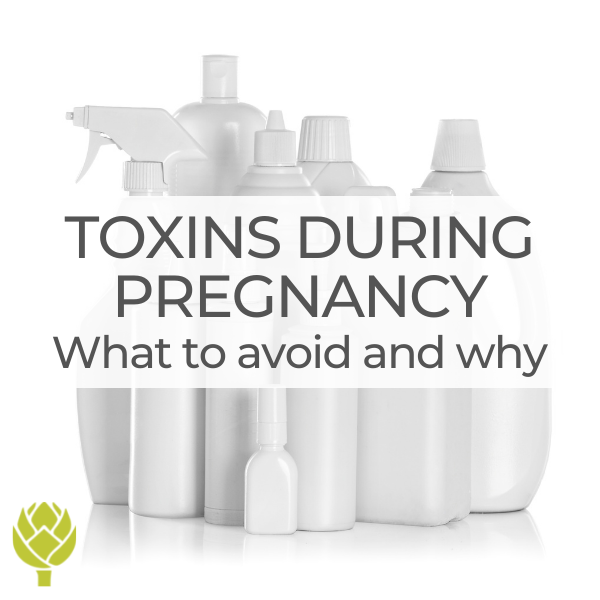

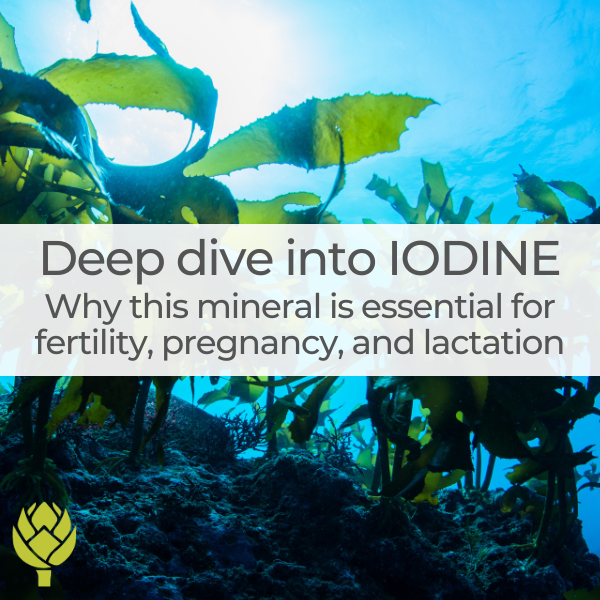
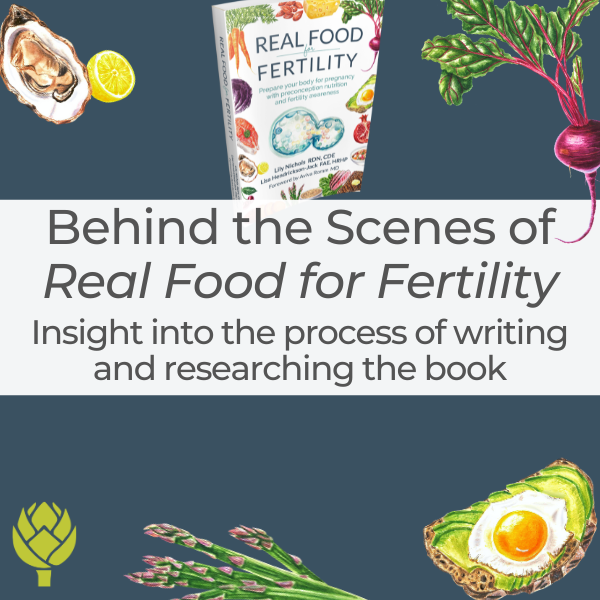
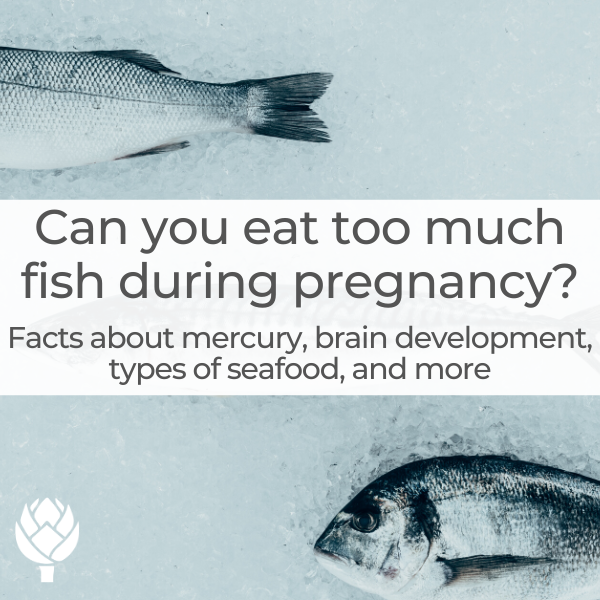
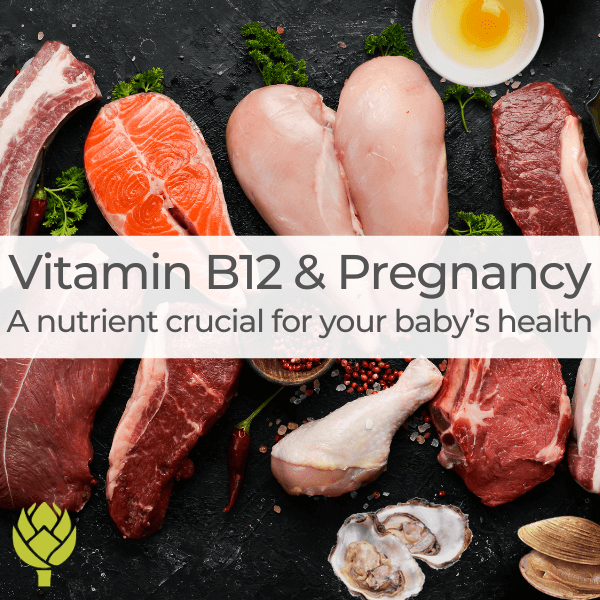



I’ve enjoyed reading your newly released book, Real Food for Pregnancy, but am perplexed by your stance on grains. I think most of us agree that highly processed, flour-based foods are certainly not ideal for prenatal diets, but why not include more liberal use of traditionally prepared grain foods like sourdoughs, fermented porridges, and well-cooked grains? These are the types of foods on which many of the cultures studied by Weston Price based their diets. They are filling, inexpensive, provide some vitamins, minerals, and prebiotics, and help make meals more satisfying. If the issue is phytates and antinutrients, then you should also be addressing this issue with nuts and seeds. If the issue is carbohydrates, these can easily be balanced with fats and proteins to help with blood sugar control. Would love your thoughts on these issues! Thank you for your work. I can’t wait to try out some of your basic vegetable recipes. They look delicious! 🙂
If you take a look at the meal plans in the book, you’ll see I do, in fact, include grains (minus the grain-free sample day). In my professional experience, grains often take the place of more nutrient-dense foods and add significantly to the glycemic load of the diet. For women with higher calorie needs, higher carbohydrate tolerance, and no health concerns related to grain consumption, I have no issues including grains in more liberal quantities and, like you, I’m a proponent of traditionally prepared grains (such as soaking, sprouting, sourdough, etc). Hope that helps to clarify!
Should you cut out fluoride when you are breastfeeding too or just when you are pregnant? Thanks!